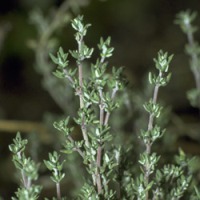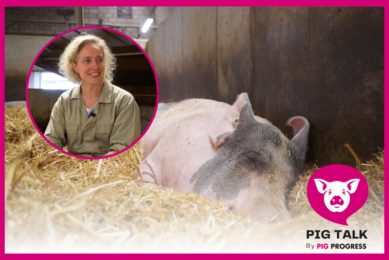Plant extracts can reduce worms in pigs

A non-pharmaceutical approach of worm control is especially valued by organic pig producers. Plant extracts may be the solution, according to a new study from the Animal Sciences Group in the Netherlands.
alternatives for the prevention and control of a mild infection of Ascaris
suum in growing and finishing pigs. Two different herb mixtures were
tested. Feed was supplemented with 3% of a herb mixture, thereby adding 1%
Thymus vulgaris, 1% Melissa officinalis and 1% Echinacea purpurea to the diet,
or with 4% of a herb mixture, thereby adding the mentioned herbs plus 1%
Camellia sinensis (black tea) to the diet.
Pigs were infected by 1000
worm eggs each. Comparatively, a negative control group (no treatment) and a
positive control group (treatment with conventional synthetic drug Flubendazole)
were included. An experiment was conducted with 32 young boars (average starter
weight was 24 kg) purchased from a SPF-pig farm. The pigs were monitored during
67 days in the period December 2006 until February 2007.
In this study,
four experimental treatments were compared:
1. negative control: no treatment
was applied to prevent or control an infection with Ascaris suum;
2. positive
control: pigs were treated with a conventional anthelmintic (Flubendazole) one
week before slaughter;
3. herb mixture: pigs were fed a diet supplemented
with a herb mixture;
4. herb mixture + tea: pigs were fed a diet supplemented
with a herb mixture (as treatment 3) plus black
tea.
Results
From this experiment it was concluded that a diet
with a herb mixture containing 1% Thymus vulgaris, 1% Melissa officinalis and 1%
Echinacea purpurea for growing and finishing pigs did not decrease the number of
pigs which are infected with Ascaris suum, but did reduce the average number of
worms in the gastro intestinal tract. The addition of 1% black tea to this herb
mixture did not result in a lower number of infected pigs and also did not
reduce the average number of worms in pigs. Flubendazole appeared to be an
effective deworming product. On organic farms with a low worm infection probably
a combination of a conventional synthetic drug and a diet with herb mixture
containing 1% Thymus vulgaris, 1% Melissa officinalis and 1% Echinacea purpurea
is an option. It depends on the level of worm infection whether it is an
opportunity to deworm sows, weaners and/or growing finishing pigs with a diet
containing the herb mixture to keep the level of Ascaris suum at an acceptable
low level.
Examination of faeces of sows, weaners and growing and
finishing pigs regularly, and also the percentage of disapproved livers of
growing and finishing pigs, can support to monitor the level of worm infection
on the farm. Based on this monitoring probably a strategy of varying deworming
with a synthetic drug and a diet with herb mixture can be developed for the
different categories of pigs. Further research on this method, and also the
suitable period to supply this herb mixture to sows related to stage of
pregnancy and weaners related to age and feed intake, is
desirable.
Related folder:
Dossier AllAbout Plant Extracts
Related
website:
Animal
Sciences Group
To receive more animal feed news, subscribe
here











